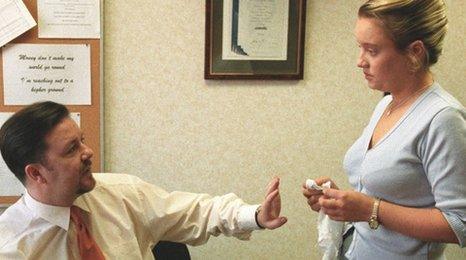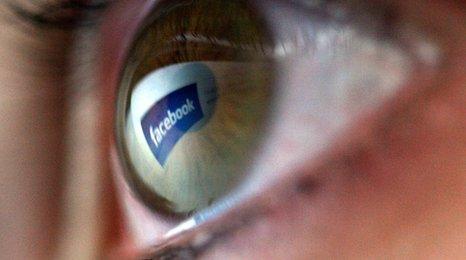Bullying link to eating disorders
- Published
Almost half of young people with eating disorders believe bullying contributed to their illness, it is claimed.
The charity Beat has carried out the biggest ever study linking the two behaviours, which has been seen exclusively by Radio 1 Newsbeat.
Researchers spoke to more than 600 16 to 25-year-olds suffering from anorexia, bulimia or overeating.
Of those, 91% said they had been bullied, while 46% said they believed that bullying had contributed to their eating disorder.
"My eating disorder began in high school when I used to experience homophobic bullying," says Sam Thomas, 23, from Hove.
"I would hide in the boys' toilets because that's the only place I knew I wouldn't be found.
"I used to comfort eat on anything that was in my lunchbox - sandwiches, crisps, biscuits, anything I could get my hands on."
But eating so much food started to make him feel ill and he began throwing up afterwards.
Have Your Say: Are eating disorders and bullying linked?, external
'Sense of relief'
"I decided to make myself sick to get the whole thing over and done with, and I realised that it brought a huge sense of relief from all the build-up of anxieties from all the bullying and all the tension that had come from that... it almost became like a coping mechanism."
He now runs a website to help other men with eating disorders.
Susan Ringwood, Beat's chief executive says stories like Sam's challenge the view that people with anorexia or bulimia are obsessed with their bodies or desperate to look like celebrities in magazines.
"We know this is not the case for most people. There are hard-wired factors, it's in our genetic make-up, it's in our brain chemistry.
"But it's also in the things that happen to us... Bullying lowers your self-esteem and having low self esteem is a really big risk factor for an eating disorder developing."
Increase in numbers
Beat claims it has been getting record numbers of e-mails, texts and phone calls from people who believe their illnesses are linked to bullying.
Seventeen-year-old Hannah Bilverstone from Hertfordshire has become an ambassador for the charity after recovering from severe anorexia.
She cut her food intake to less than 100 calories a day and became so weak she could barely walk.
Hannah says she was a sensitive child who cried easily and bullies targeted her from the age of seven.
She says pupils in her class started stealing her belongings and pulling her hair. They later hit her over the head and battered her with rocks.
"The bullying made me close myself off from the world and I felt really, really weak.
"I developed anorexia and that gave me a lot of strength and it gave me control of a life that was completely spiralling out of control.
"Controlling my food and my exercise gave me the control back and it made me feel empowered."
Beat is hoping Sam and Hannah's stories will encourage other people with similar problems to talk about them.
The charity says there needs to be more urgent, detailed research into links between bullying and eating disorders.
The government insists it is cracking down on bullying and it understands the impact it can have on young people's confidence, self-esteem and mental health.
Sam's advice for anyone struggling with bullying is to make sure you get help from friends, family or teachers before it takes over your life.
"The eating disorder was my way of being able to get through it," he said.
"Without that bullying, I probably wouldn't have had an eating disorder... It was purely a way to cope."
- Published18 November 2009

- Published17 November 2009

- Published16 November 2009

- Published16 November 2009

- Published16 November 2009
